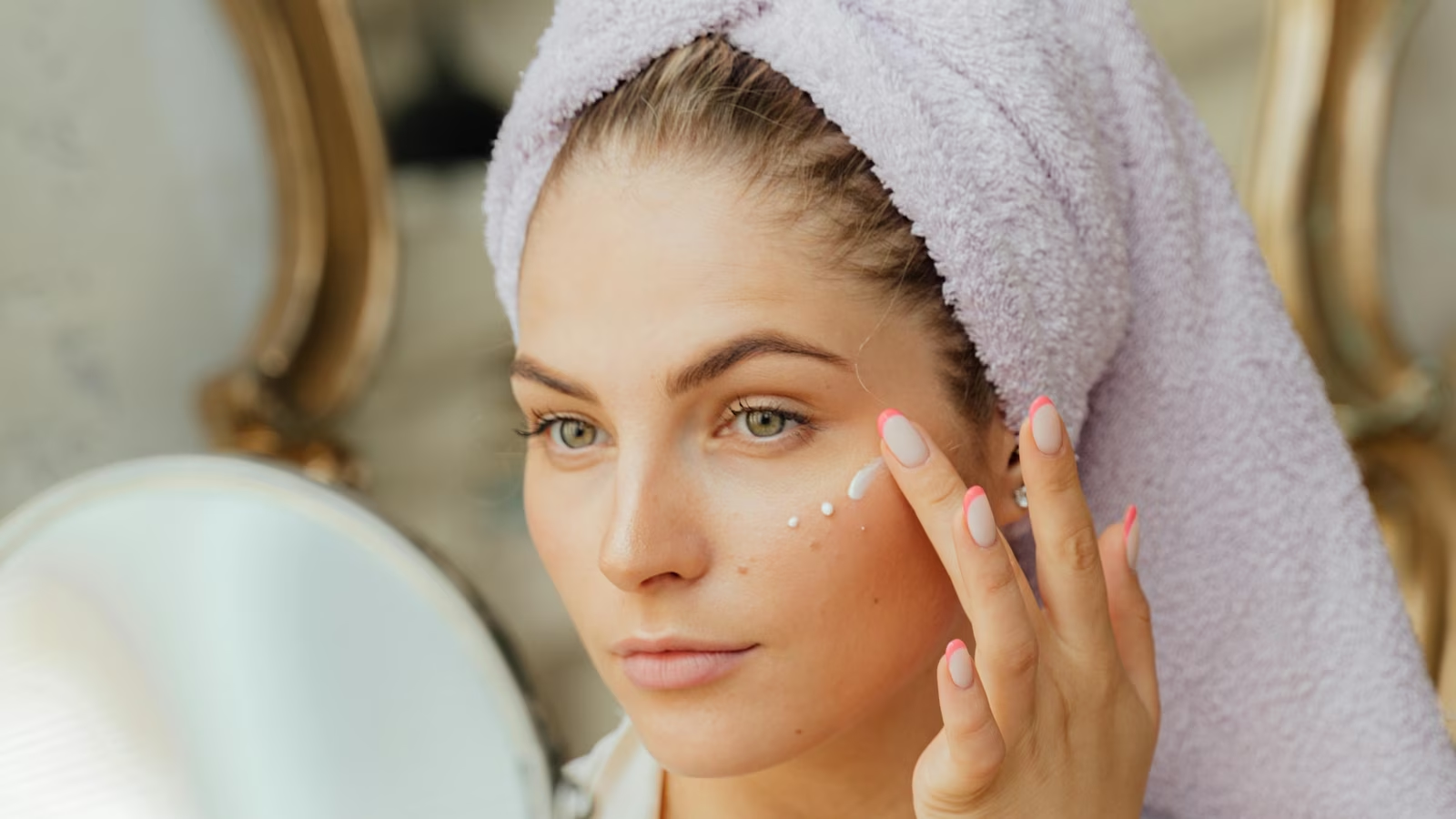A skin barrier that’s functioning properly will both enable the products to sink into skin – quickly and efficiently – and prevent irritations.
A nutritious diet, good sleep and stress-reduction are important too to have glowing skin. Here are five skincare actives that constitute the main recipe of a skincare regime: vitamin C, niacinamide, retinol and green tea.
Vitamin C
American cosmetics and hygiene industries have always catered to healthy skin. From its beginnings in the 19th century, patented (proprietary) medicines and cosmetic ‘preparations’ offered up promises of ‘removing freckles’, ‘calming redness’, ‘curing rashes and scabs’, ‘rendering the complexion clear and white’, ‘preventing wrinkles/age spots and clavioles’ and ‘giving the skin a soft radiance’; etc. etc.
After all, skincare is an important part of our regimen of wellness and beauty, but skin is an organ, and it doesn’t come without its share of vulnerabilities from sun exposure and air pollution.
Vitamin C is an anti-ageing antioxidant so it can help to keep skin looking younger, fresher, and brighter. Studies also show that this vitamin helps shield skin from UV rays, as well as free radical damage, can help fade discolouration, improve tone, and help the skin increase collagen production. In studies, l-ascorbic acid has been shown to be most effectively absorbed into the skin’s layers where it can be utilised.
Niacinamide
Niacinamide is a workhorse ingredient in the beauty-lover’s skincare routine, working complimentarily with other key ingredients to produce the best results and help to maintain a healthy microbiome on the skin’s surface, creating a look that is its very best.
Not only can hydroxybenzoic acid boost the efficacy of other skincare ingredients such as retinol, vitamin C and hyaluronic acid, it has the added bonus of acting as the ultimate ingredient for oily skin types. It’s a proven ingredient to reduce sebum production and minimise pores.
Finally, niacinamide is a must-have skin-tone evener and skin-firming and anti-ageing agent. In addition to having a huge antioxidant potential, it brightens the skin and helps to improve the appearance of fine lines. It is beneficial to all skin types and tones – so include it in your skincare routine. Apply it after tonering but before moisturiser and see the results. Our favourite include COSRX Niacinamide 15 Serum; this potent serum contains 20% Niacinamide plus other anti-ageing and pore-tightening ingredients such as Purslane, Acetyl Glucosamine and Sea Daffodil.
Retinol
Retinol is vital to skincare routines because it speeds up cell turnover (when new cells get delivered up to surface) to make skin more even toned and smooth. It works as an A derivative vitamin A derivative to do so, while at the same time helping to improve the appearance of hyperpigmentation and soften fine lines and wrinkles.
If you’re using a retinol, which is a mild irritant, you can minimise the drying of the skin using products that contain high concentrations of humectants, like Hyaluronic Acid or Polyhydroxy Acids,’ Garshick tells Clement. Garshick also suggests that those with more sensitive skin use a product that contains anti-irritants, which will make it more effective and less drying.
Retinoids alone (tretinoin products are tailored for this purpose) lighten dark spots from sun damage by increasing cellular turnover and reducing melanin production. You will see results in a few months; be sure to consult a dermatologist who can offer in-office lightening treatments or homecare routines that can speed up this process.
Green Tea
While it might have long been a well-known drink full of antioxidants, when applied topically to your skin – say in a skincare product – green tea’s antioxidants including EGCG is your skin’s mini superhero, working away to neutralise free radicals created by the degradation of various environmental elements or internal processes, which damage the cells, especially in the skin resulting in visible ageing and contributing to skin cell damage.
Have spots and blackheads blocked your pores up? Green tea is anti-bacterial: the antimicrobial agents in green tea attack bacteria and stop it from multiplying and leading to spots further down the line.
Have you ever noticed that your face gets red like a lobster after spending too much time in the sun? Your skin is probably showing evidence of oxidative stress from over-exposure to the UV rays, and you are undergoing oxidative stress. But wait! The green tea polyphenol EGCG is an anti-ageing miracle: it slows down primeval ruination of your skin cells and helps repair DNA damage due to UV-induced oxidative stress: glowing beauty is here to stay!





